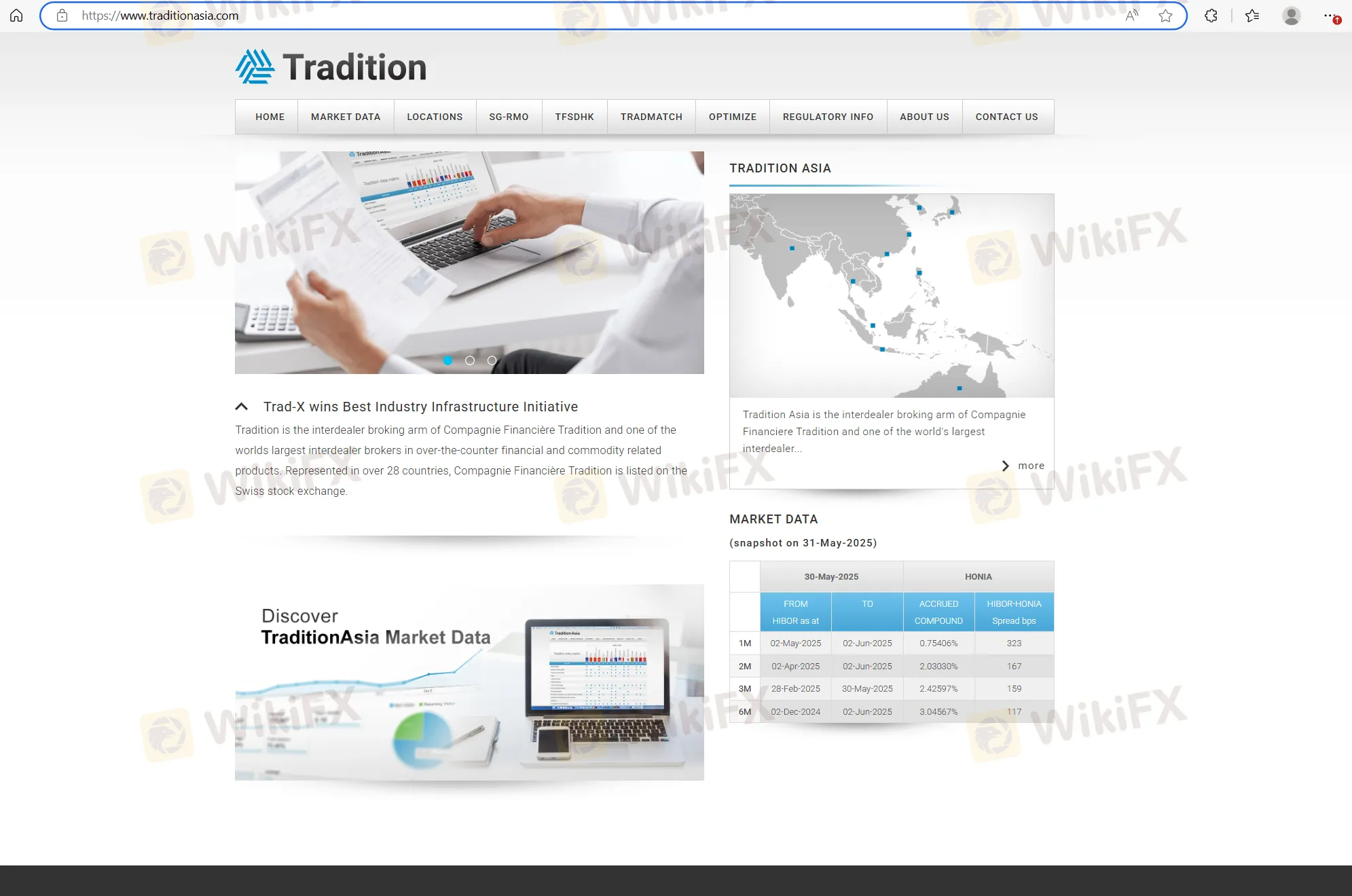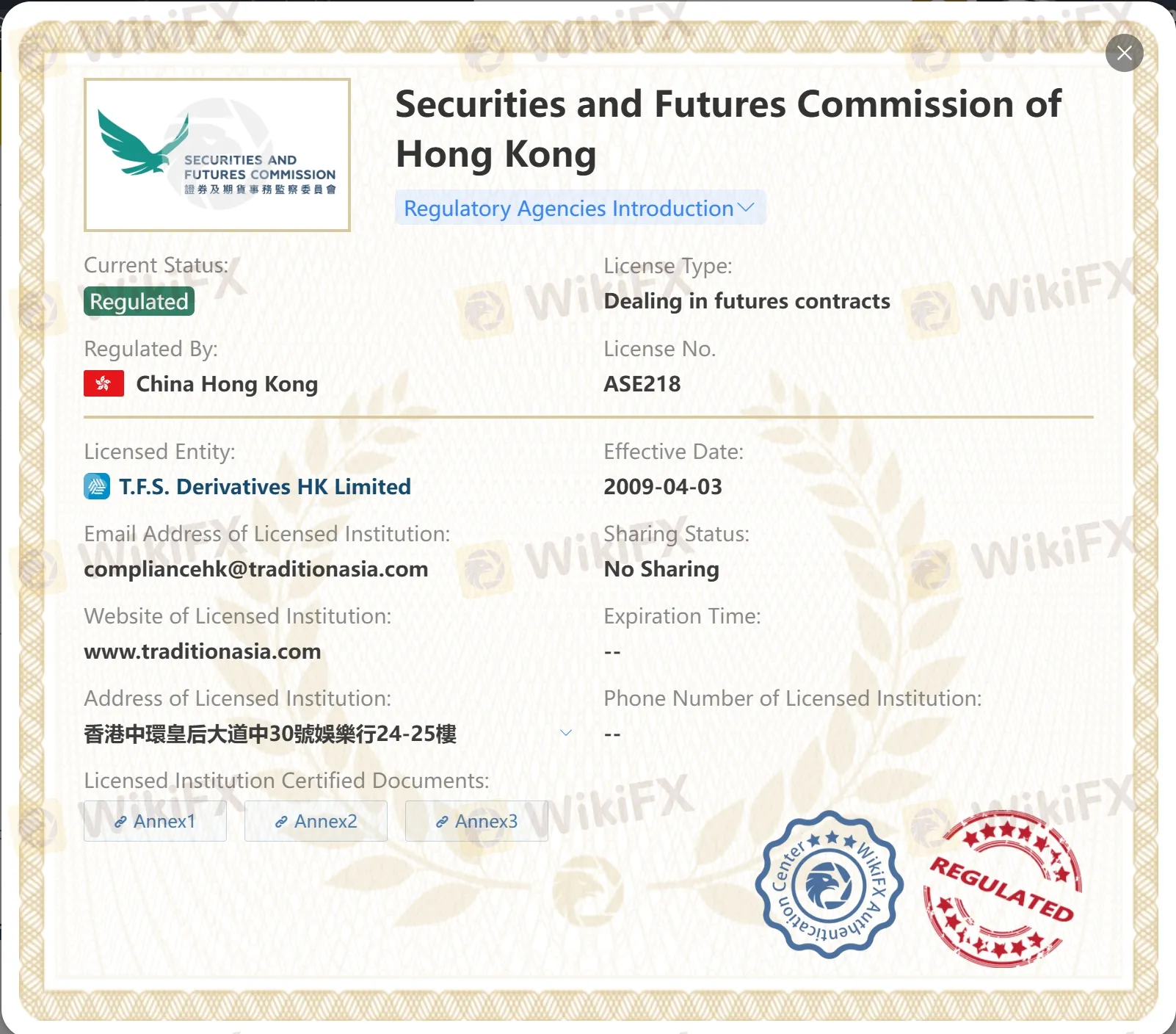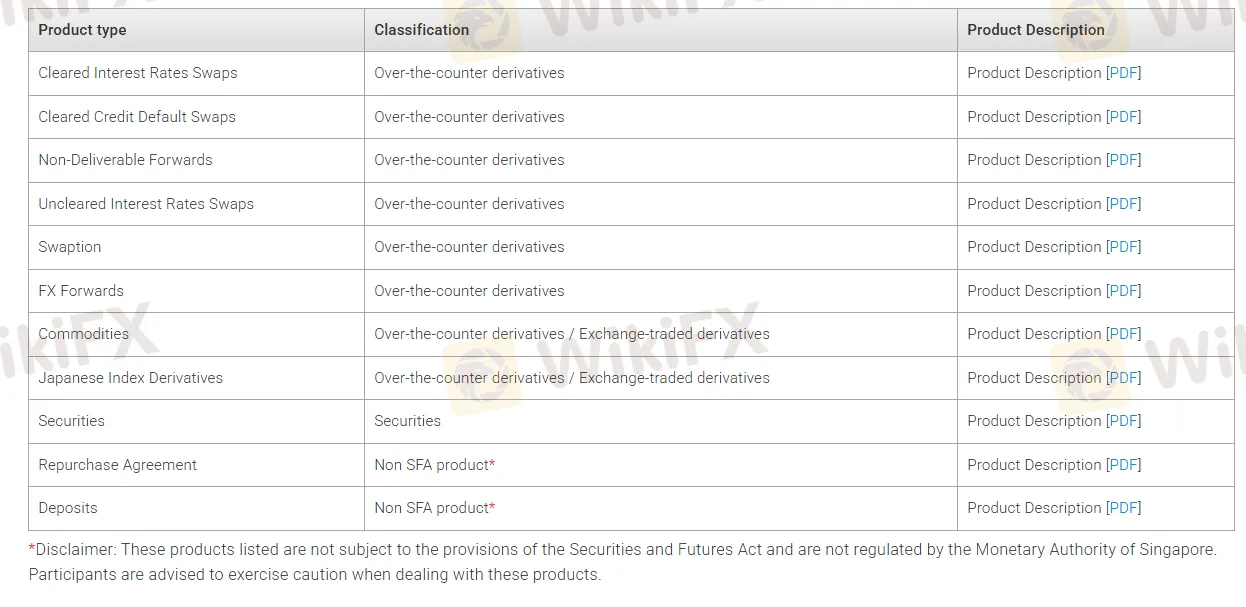Profil perusahaan
| Tradition Ringkasan Ulasan | |
| Dibentuk | 2004 |
| Negara/Daerah Terdaftar | Australia |
| Regulasi | SFC |
| Instrumen Pasar | FX forwards, komoditas, derivatif indeks Jepang, sekuritas, swaption, non-deliverable forwards, dll. |
| Platform Perdagangan | Sistem TRADe |
| Dukungan Pelanggan | Tel: +61 2 9135 4931; +61 2 9135 4936; +61 2 9135 4933 |
| Email: market.data.sales@traditionasia.com; trading.operations@traditionasia.com | |
Alamat:
| |
| Info kontak untuk kantor lain: https://www.traditionasia.com/contactUS | |
Informasi Tradition
Tradition adalah divisi pialang antar dealer dari Compagnie Financière Tradition, salah satu pialang terbesar di dunia untuk produk keuangan dan komoditas luar bursa seperti FX forwards, komoditas, derivatif indeks Jepang, sekuritas, swaption, dll. Saat ini pialang ini beroperasi di lebih dari 28 negara termasuk China, Hong Kong, Jepang, Singapura, dll.
Hal baiknya adalah perusahaan ini diatur oleh SFC, yang berarti aktivitas keuangannya secara ketat dipantau oleh otoritas tersebut, dalam beberapa hal menjamin tingkat perlindungan pelanggan tertentu.

Kelebihan dan Kekurangan
| Kelebihan | Kekurangan |
| Diatur oleh SFC | Keterbatasan transparansi pada kondisi perdagangan |
| Kehadiran global | |
| Berbagai produk perdagangan |
Apakah Tradition Legal?
Tradition saat ini diatur dengan baik oleh Otoritas Sekuritas dan Berjangka Hong Kong (SFC) dengan nomor lisensi T2023364.
| Negara yang Diatur | Penyelenggara | Status Saat Ini | Entitas yang Diatur | Jenis Lisensi | Nomor Lisensi |
 | SFC | Diatur | T.F.S. Derivatives HK Limited | Bertransaksi dalam kontrak berjangka | ASE218 |

| Instrumen Perdagangan | Didukung |
| Forward FX | ✔ |
| Komoditas | ✔ |
| Derivatif indeks Jepang | ✔ |
| Sekuritas | ✔ |
| Swaption | ✔ |
| Forward non-penyerahan | ✔ |
| Indeks | ❌ |
| Saham | ❌ |
| Kriptokurensi | ❌ |
| Obligasi | ❌ |
| Opsi | ❌ |
| ETF | ❌ |

Platform Perdagangan
Platform perdagangan Tradition, yang dioperasikan oleh TFS Derivatives HK Ltd, adalah sistem entri pesanan yang diatur yang dirancang untuk perdagangan Credit Default Swaps (CDS) dan Obligasi. Ini memfasilitasi distribusi pesanan dan pemberitahuan eksekusi melalui pemberitahuan waktu nyata. Platform ini juga mendukung sesi pencocokan harga tetap, atau lelang, yang memungkinkan peserta untuk mengirimkan pesanan beli atau jual pada level harga yang dipublikasikan.
























